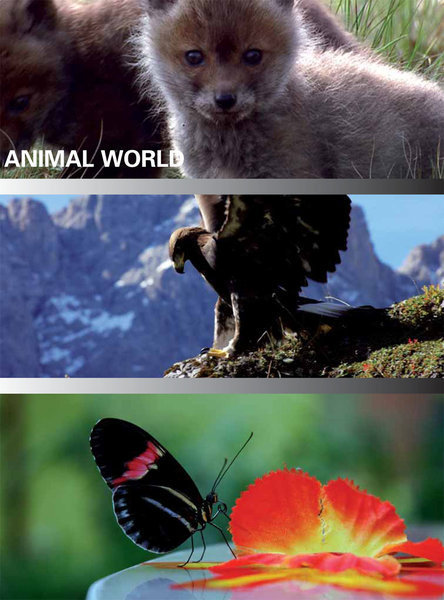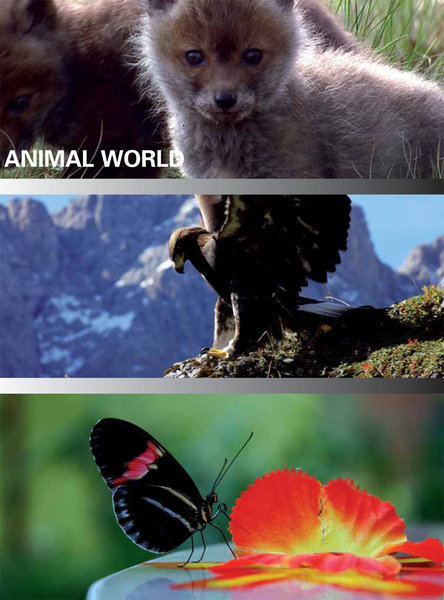- Current Line-Up
- Comedy
- Animation
- Documentary
- Drama
- Family Entertainment
- Thriller
- Upcoming
- Festival-Highlights
- Factual Entertainment
- Family Entertainment
- Fiction
- Lifestyle
- Scripted Reality
- Show
- Current Affairs
- Culture/Travel
- Docudrama
- HD Content
- Health/Food
- History
- Human Interest
- Market Premiere
- Nature/Wildlife
- Portrait
- Religion
- Science
- Market Premiere
- Series
- Action/Adventure
- Thriller/Crime
- Drama
- Mini Series
- Event Movie
- Comedy
- Romance
- Family Entertainment
- Animation
- Movie Collection
- Feature Film
- HD Content
- Fiction English
- Feature Classic
- No linguistic content
- Common
- German
- English
- French
- Spanish
- Italian
- Turkish
- All
- Abkhazian
- Achinese
- Acoli
- Adangme
- Adygei
- Adyghe
- Afar
- Afrihili
- Afrikaans
- Afro-Asiatic (Other)
- Ainu
- Akan
- Akkadian
- Albanian
- Alemannic
- Aleut
- Algonquian languages
- Altaic (Other)
- Amharic
- Angika
- Apache languages
- Arabic
- Aragonese
- Arapaho
- Arawak
- Armenian
- Aromanian
- Artificial (Other)
- Arumanian
- Assamese
- Asturian
- Athapascan languages
- Australian languages
- Austronesian (Other)
- Avaric
- Avestan
- Awadhi
- Aymara
- Azerbaijani
- Bable
- Balinese
- Baltic (Other)
- Baluchi
- Bambara
- Bamileke languages
- Banda languages
- Bantu (Other)
- Basa
- Bashkir
- Basque
- Batak languages
- Beja
- Belarusian
- Bemba
- Bengali
- Berber (Other)
- Bhojpuri
- Bihari
- Bikol
- Bilin/Blin
- Bini/Edo
- Bislama
- Blin
- Bokmål, Norwegian
- Bosnian
- Braj
- Breton
- Buginese
- Bulgarian
- Buriat
- Burmese
- Caddo
- Cantonese
- Catalan
- Caucasian (Other)
- Cebuano
- Celtic (Other)
- Central American Indian (Other)
- Chagatai
- Chamic languages
- Chamorro
- Chechen
- Cherokee
- Chewa
- Cheyenne
- Chibcha
- Chichewa
- Chinese
- Chinook jargon
- Chipewyan
- Choctaw
- Chuang
- Church Slavic
- Church Slavonic
- Chuukese
- Chuvash
- Classical Nepal Bhasa
- Classical Newari
- Classical Syriac
- Cook Islands Maori
- Coptic
- Cornish
- Corsican
- Cree
- Creek
- Creoles and pidgins (Other)
- Creoles and pidgins, English based (Other)
- Creoles and pidgins, French-based (Other)
- Creoles and pidgins, Portuguese-based (Other)
- Crimean Tatar
- Crimean Turkish
- Croatian
- Cushitic (Other)
- Czech
- Dakota
- Danish
- Dargwa
- Delaware
- Dhivehi
- Dimili
- Dimli
- Dinka
- Divehi
- Dogri
- Dogrib
- Dravidian (Other)
- Duala
- Dutch
- Dutch, Middle (ca.1050-1350)
- Dyula
- Dzongkha
- Eastern Frisian
- Edo
- Efik
- Egyptian (Ancient)
- Ekajuk
- Elamite
- English, Middle (1100-1500)
- English, Old (ca.450-1100)
- Erzya
- Esperanto
- Estonian
- Ewe
- Ewondo
- Fang
- Fanti
- Faroese
- Fijian
- Filipino
- Finnish
- Finno-Ugrian (Other)
- Flemish
- Fon
- French (Canadian)
- French (Parisian)
- French, Middle (ca.1400-1600)
- French, Old (842-ca.1400)
- Friulian
- Fulah
- Ga
- Gaelic
- Galibi Carib
- Galician
- Ganda
- Gayo
- Gbaya
- Geez
- Georgian
- German, Low
- German, Middle High (ca.1050-1500)
- German, Old High (ca.750-1050)
- Germanic (Other)
- Gikuyu
- Gilbertese
- Gondi
- Gorontalo
- Gothic
- Grebo
- Greek
- Greek, Ancient (to 1453)
- Greenlandic
- Guarani
- Gujarati
- Gwich'in
- Haida
- Haitian
- Haitian Creole
- Hausa
- Hawaiian
- Hebrew
- Herero
- Hiligaynon
- Himachali
- Hindi
- Hiri Motu
- Hittite
- Hmong
- Hungarian
- Hupa
- Iban
- Icelandic
- Ido
- Igbo
- Ijo languages
- Iloko
- Imperial Aramaic (700-300 BCE)
- Inari Sami
- Indic (Other)
- Indo-European (Other)
- Indonesian
- Ingush
- Interlingua
- Interlingue
- Inuktitut
- Inupiaq
- Iranian (Other)
- Irish
- Irish, Middle (900-1200)
- Irish, Old (to 900)
- Iroquoian languages
- Japanese
- Javanese
- Jingpho
- Judeo-Arabic
- Judeo-Persian
- Kabardian
- Kabyle
- Kachin
- Kalaallisut
- Kalmyk
- Kamba
- Kannada
- Kanuri
- Kara-Kalpak
- Karachay-Balkar
- Karelian
- Karen languages
- Kashmiri
- Kashubian
- Kawi
- Kazakh
- Khasi
- Khmer (Cambodian)
- Khoisan (Other)
- Khotanese
- Kikuyu
- Kimbundu
- Kinyarwanda
- Kirdki
- Kirghiz
- Kirmanjki
- Klingon
- Komi
- Kongo
- Konkani
- Korean
- Kosraean
- Kpelle
- Kru languages
- Kuanyama
- Kumyk
- Kurdish
- Kurukh
- Kutenai
- Kwanyama
- Kyrgyz
- Ladino
- Lahnda
- Lamba
- Land Dayak languages
- Lao
- Latin
- Latvian
- Lezghian
- Limburgan
- Limburger
- Limburgish
- Lingala
- Lithuanian
- Lojban
- Low German
- Low Saxon
- Lower Sorbian
- Lozi
- Luba-Katanga
- Luba-Lulua
- Luiseno
- Lule Sami
- Lunda
- Luo (Kenya and Tanzania)
- Lushai
- Luxembourgish
- Macedo-Romanian
- Macedonian
- Madurese
- Magahi
- Maithili
- Makasar
- Malagasy
- Malay
- Malayalam
- Maldivian
- Maltese
- Manchu
- Mandar
- Mandarin
- Mandingo
- Manipuri
- Manobo languages
- Manx
- Maori
- Mapuche
- Mapudungun
- Marathi
- Mari
- Marshallese
- Marwari
- Masai
- Mayan languages
- Mende
- Mi'kmaq
- Micmac
- Minangkabau
- Mirandese
- Mohawk
- Moksha
- Moldavian
- Mon-Khmer (Other)
- Mongo
- Mongolian
- Mossi
- Multiple languages
- Munda languages
- N'Ko
- Nahuatl languages
- Nauru
- Navaho
- Navajo
- Ndebele, North
- Ndebele, South
- Ndonga
- Neapolitan
- Nepal Bhasa
- Nepali
- Newari
- Nias
- Niger-Kordofanian (Other)
- Nilo-Saharan (Other)
- Niuean
- Nogai
- Norse, Old
- North American Indian
- North Ndebele
- Northern Frisian
- Northern Sami
- Northern Sotho
- Norwegian
- Norwegian Bokmål
- Norwegian Nynorsk
- Nubian languages
- Nyamwezi
- Nyanja
- Nyankole
- Nynorsk, Norwegian
- Nyoro
- Nzima
- Occitan (post 1500)
- Official Aramaic (700-300 BCE)
- Oirat
- Ojibwa
- Old Bulgarian
- Old Church Slavonic
- Old Newari
- Old Slavonic
- Oriya
- Oromo
- Osage
- Ossetian
- Ossetic
- Otomian languages
- Pahlavi
- Palauan
- Pali
- Pampanga
- Pangasinan
- Panjabi
- Papiamento
- Papuan (Other)
- Pedi
- Persian
- Persian, Old (ca.600-400 B.C.)
- Philippine (Other)
- Phoenician
- Pilipino
- Pohnpeian
- Polish
- Portuguese
- Portuguese (Brazilian)
- Prakrit languages
- Provençal
- Provençal, Old (to 1500)
- Punjabi
- Pushto
- Quechua
- Rajasthani
- Rapanui
- Rarotongan
- Reserved for local use
- Romance (Other)
- Romanian
- Romansh
- Romany
- Rundi
- Russian
- Salishan languages
- Samaritan Aramaic
- Sami languages (Other)
- Samoan
- Sandawe
- Sango
- Sanskrit
- Santali
- Sardinian
- Sasak
- Saxon, Low
- Scots
- Scottish Gaelic
- Selkup
- Semitic (Other)
- Sepedi
- Serbian
- Serbo-Croatian
- Serer
- Shan
- Shona
- Sichuan Yi
- Sicilian
- Sidamo
- Sign Languages
- Siksika
- Sindhi
- Sinhala
- Sinhalese
- Sino-Tibetan (Other)
- Siouan languages
- Skolt Sami
- Slave (Athapascan)
- Slavic (Other)
- Slovak
- Slovenian
- Sogdian
- Somali
- Songhai languages
- Soninke
- Sorbian languages
- Sotho, Northern
- Sotho, Southern
- South American Indian (Other)
- South Ndebele
- Southern Altai
- Southern Sami
- Spanish (Castilian)
- Spanish (Latin American)
- Sranan Tongo
- Sukuma
- Sumerian
- Sundanese
- Susu
- Swahili
- Swati
- Swedish
- Swiss German
- Syriac
- Tagalog
- Tahitian
- Tai (Other)
- Taiwanese
- Tajik
- Tamashek
- Tamil
- Tatar
- Telugu
- Tereno
- Tetum
- Thai
- Tibetan
- Tigre
- Tigrinya
- Timne
- Tiv
- Tlingit
- Tok Pisin
- Tokelau
- Tonga (Nyasa)
- Tonga (Tonga Islands)
- Tsimshian
- Tsonga
- Tswana
- Tumbuka
- Tupi languages
- Turkish, Ottoman (1500-1928)
- Turkmen
- Tuvalu
- Tuvinian
- Twi
- Udmurt
- Ugaritic
- Uighur
- Ukrainian
- Umbundu
- Uncoded languages
- Undetermined
- Upper Sorbian
- Urdu
- Uyghur
- Uzbek
- Vai
- Valencian
- Venda
- Vietnamese
- Volapük
- Votic
- Wakashan languages
- Walamo
- Walloon
- Waray
- Washo
- Welsh
- Western Frisian
- Wolof
- Xhosa
- Yakut
- Yao
- Yapese
- Yiddish
- Yoruba
- Yugoslavian
- Yupik languages
- Zande languages
- Zapotec
- Zaza
- Zazaki
- Zenaga
- Zhuang
- Zulu
- Zuni
- tlhIngan-Hol
löschen The Mystery Of The Sea Snakes (90/268)
Animals/Wildlife
German [OV]
00h30h00h00 min
löschen The Mystery Of The Sea Snakes (90/268)
The sea snakes are probably the most venomous vertebrates in the world. Yet Dr. Glen Burns treats them so affectionately that one tends to forget the danger. It's as if his continuous speaking soothes the animal. "In 20 years of working with the animals, I have never been bitten, maybe because I began to think and feel like a sea snake." Yet if the maritime biologist were to make a mistake and be bitten, he would not reach the 100-kilometre distant mainland alive. Their venom has made the sea snakes one of evolution's most successful specimens. For 100 million years they have been gliding through the seas. Since the last great global drop in temperature, sea snakes have become the latest model of the snake family. On the one hand, they seem to be an immature prototype - they still have to rise to the water's surface to breathe, even though their skin is already able to take in oxygen from the water. On the other hand, they have developed highly specialized survival and hunting strategies. Glenn Burns researches these dangerous animals in the wild. Many species roam over thousands of kilometres to mate. Glenn Burns observes the sea snakes along the Great Barrier Reef, probably the place where the sea snakes set out on their triumphal expedition through the tropical seas. The maritime biologist has worked with 17 species of sea snakes and, by means of tracking devices, has established that one species covered over 3,000 kilometres in search of nutrition. Who knows when the first sea snakes will turn up in the Mediterranean?
The following new episodes are available:
- Jaguar Safari
- The Guinea Pig and his Grumpy Neighbors
- Raccoon Party
- Tiger Country
- Portugal - The Return of the Wild Creatures

Key Information
| Original Title | Welt der Tiere - Das Rätsel der Seeschlangen |
| Genre |
Animals/Wildlife |
| Produced by: | Bayerischer Rundfunk |
| Year Of Production | 2004 |
| Duration | 00h30h00h00 min |
| Country Of Origin | Germany |
| Language Versions | German [OV] |
Cast & Crew
| Director/s | |
| Cast | |
| Producer/s | |
| Writer/s |

